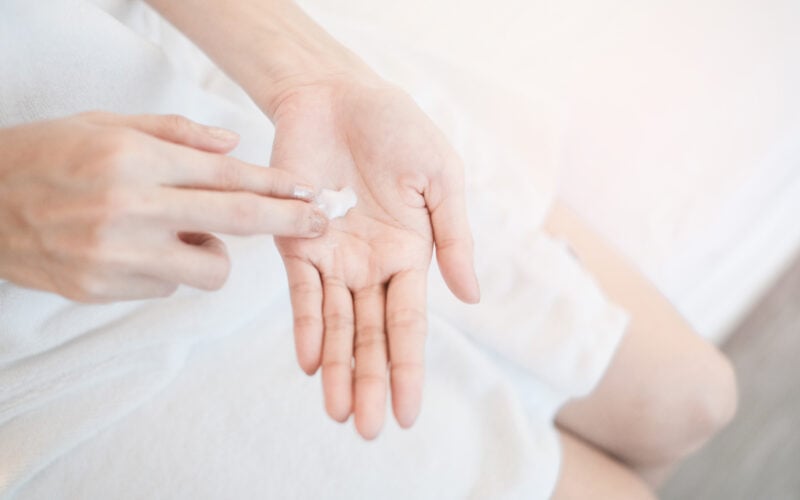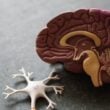The birth of a baby can be one of the most emotionally and hormonally turbulent events in a woman’s life. Pain, fear, joy, and ecstasy come in rapid succession, joined by interrupted sleep and dramatic hormonal shifts. Often euphemistically dubbed the “baby blues,” it is no laughing matter for a great number of women. For too long, postpartum depression (PPD) was a mysterious, misunderstood condition that was hard to talk about and too often went undiagnosed. In recent years, as more attention has been given to mental illness and the mother’s experience of childbirth, it’s become clear that PPD is a challenge many women (one in seven, in fact) face, yet little is known about how to manage and treat it.
The National Institute of Mental Health defines postpartum depression as “a mood disorder that can affect women after childbirth,” and symptoms can include “feelings of extreme sadness, anxiety, and exhaustion that may make it difficult for them to complete daily care activities for themselves or for others.” It can be difficult to diagnose in part because it can be challenging to self-determine what qualifies as “extreme” and because part of suffering from PPD means it’s even harder to reach out for help.
PPD doesn’t have a single cause, nor does it have a single treatment. Substantial theories point to two major factors that can lead to postpartum depression: the significant decrease in estrogen and progesterone that a woman experiences after she gives birth, combined with the general lack of quality sleep that’s part of caring for a newborn.
It should be noted that postpartum depression is more severe than a little “baby blues” or being tired. PPD interferes with daily tasks and can escalate into suicidal thoughts or ideas about doing harm to others, the baby in particular. PPD should not be left untreated, as it can last for months or years if not addressed. A trained counselor or psychiatrist, particularly one who specializes in the postpartum period, can be an important first step. Psychotherapy or cognitive behavioral therapy can be effective but are not always accessible, especially when a mother needs to attend to her newborn.
In addition to counseling, charting a returning cycle with a fertility awareness-based method (FABM) under the guidance of a trained instructor may help to identify other factors at play as well. In a previous piece for Natural Womanhood, Grace Stark writes, “knowing the normal range of emotions during one’s cycle can empower women to realize more quickly when something is off emotionally.”
When PPD is diagnosed, a common solution is a prescription for antidepressants. Yet many women are turning away from pharmaceuticals for a variety of reasons. For nursing mothers, antidepressants pose the obstacle of potentially interfering with breastfeeding. For these and others, as Katherine Melville wrote earlier this year for Natural Womanhood, antidepressants “alter brain chemistry in a way that can make people more susceptible to depression relapse once the medication is discontinued.”
You may have heard about women with PPD being treated with progesterone. If the primary cause is a drop in hormone levels, it would follow that replacing progesterone or estrogen could help to alleviate symptoms. Two recent publications have measured the largely successful use of Brexanalone, a natural metabolite of progesterone. According to the study, patients who receive a 60-hour infusion of Brexanalone show significant and immediate improvement in symptoms, whereas antidepressants can take weeks to kick in and must be taken every day to maintain their effectiveness.
Because studies are few and far between, some healthcare providers remain skeptical while still acknowledging progesterone’s potential: Dr. Kim Langdon, OB-GYN, says that while “the role of natural progesterone in the prevention and treatment of postpartum depression has not been evaluated . . . progesterone has some anti-anxiety and sedating properties.” Then again, perhaps the fact that few studies are available only means that we haven’t made all the necessary connections yet.
While clinical evidence is still lacking, Dr. Michael E. Platt, a medical doctor and author who spent the last 20 years of his career helping patients with a natural approach to hormone balance, explains that in addition to the drop in progesterone, postpartum women may also release “high levels of adrenaline, which is an anger hormone. Internalization of anger is a frequent cause of depression (as well as anxiety).” Dr. Platt, who is a pioneer in the research and advancement of the therapeutic use of progesterone cream and other bio-identical hormones, found that progesterone can be used to block adrenaline, thus producing positive results for women with PPD. According to him, “progesterone cream, or possibly progesterone vaginal suppositories, are the only logical treatments for PPD.”
Furthermore, in his book The NaproTECHNOLOGY Revolution, Dr. Thomas W. Hilgers, founder and director of the Pope Paul VI Institute for the Study of Human Reproduction, presents two studies where a small sample of patients with PPD symptoms received a progesterone treatment. The symptoms were analyzed before and after treatment and out of the 53 patients, 81% showed a marked improvement and 11% a moderate improvement, Only four of them didn’t show improvement in part because they had been experiencing it for a longer period of time. For two patients who had initially shown suicidal thoughts, these symptoms disappeared as a result of the treatment.
Without more clinical evidence, which requires research funding, it is easy for mainstream medicine to refute these approaches even though they seem to achieve solid results at minimal costs and side effects. Does it mean progesterone cream will work to remedy every case of PPD? Not necessarily, because every woman’s situation is a combination of different physical, mental, emotional, and environmental factors. But it’s certainly possible to work for some women, and especially encouraging for those who aren’t amenable to antidepressants.
As this topic gains momentum in contemporary culture, we hope to see more efforts being made to determine the causes and promote solutions that care for the whole woman—mind, body, and soul.











